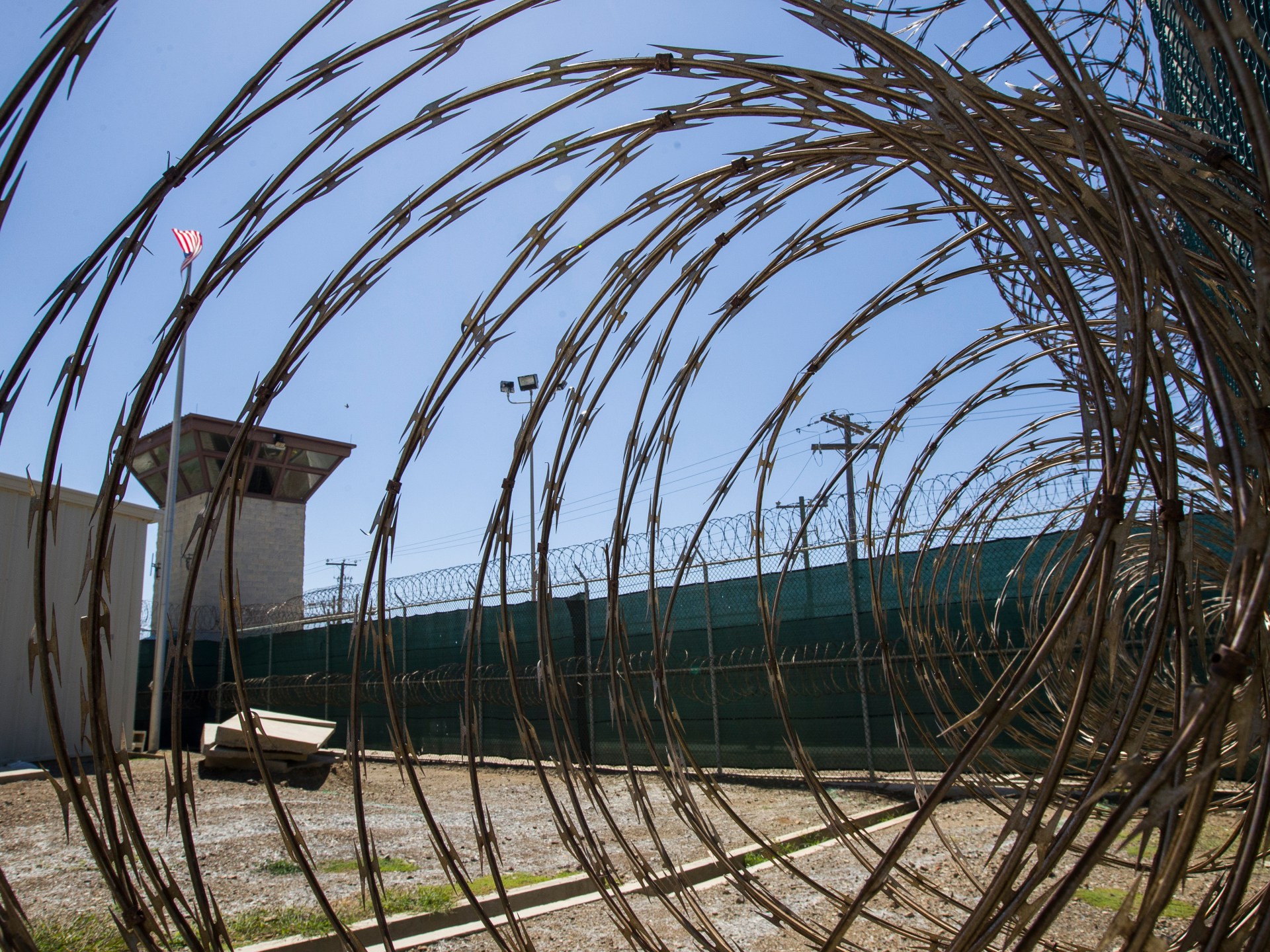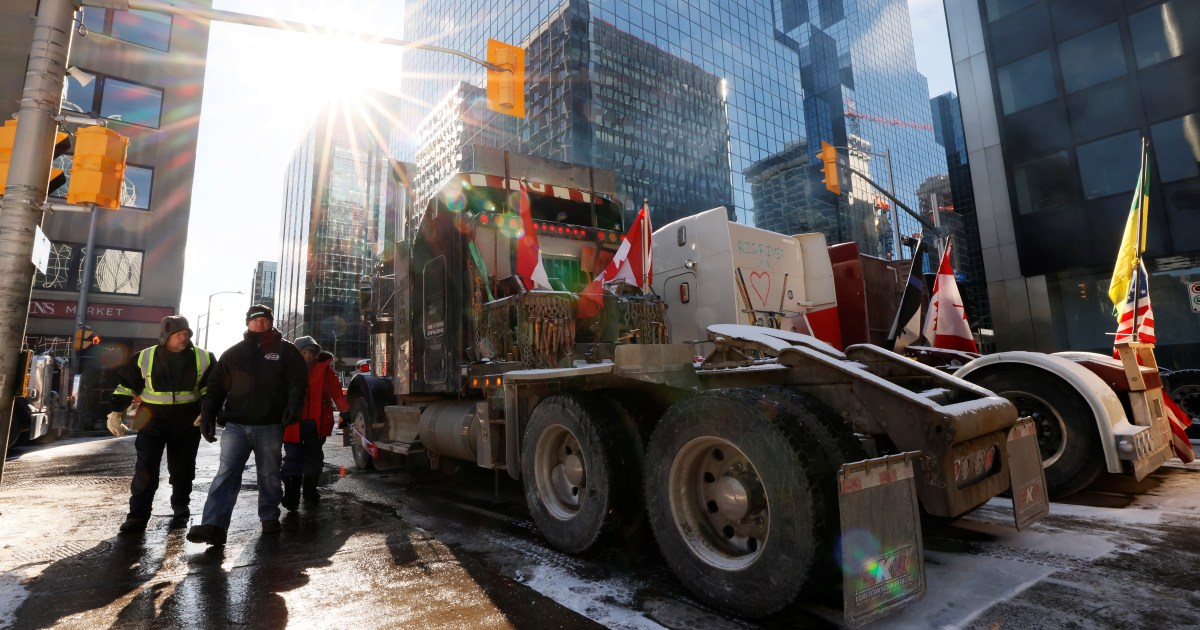Boris Johnson: Can the UK’s prime minister hold on to power? | Boris Johnson News
London, United Kingdom – UK Prime Minister Boris Johnson has often been described as a “teflon leader”.
Over his past two years in office, he has managed to avoid multiple scandals from sticking to his reputation.
But his political teflon may be starting to wear off as his Conservatives reel from a stunning by-election defeat in North Shropshire – a safe seat for the right-wing party for almost 200 years, as his own MPs have rebelled against him, and while he faces plummeting poll ratings and persistent questions about whether he or his staff dismissed the very lockdown restrictions they imposed on the public.
The deluge of bad news is now raising questions about whether Johnson, who took office in 2019, will be able hold on to power.
Voters are not the immediate concern as the next general election is not until 2024, but Conservative Members of Parliament (MPs) have the power to remove him from office through an internal leadership vote, or a vote of no confidence.
“More and more people are sensing that even if the Boris bubble has not completely burst, then it does seem to have been punctured by the events of recent weeks,” said Matthew Flinders, a politics professor at Sheffield University in the UK.
Thursday’s by-election defeat in North Shropshire – the latest in the series of events – was “catastrophic”, said Flinders.
The centrist Liberal Democrats, the UK’s third largest party, managed to overturn a 23,000-vote Conservative majority to win the seat by a margin of almost 6,000 votes.
The vote was triggered by the resignation of former minister Owen Paterson, who quit over a corruption scandal.
Johnson’s botched attempt to spare Paterson from a 30-day suspension from the Commons led to accusations of corruption and sleaze among Conservatives, and criticism of the party was a key feature of the North Shropshire election campaign.
The result shows that “the credibility of the prime minister is being questioned in the party’s heartlands” and it will be “very hard even for Johnson to laugh it off,” said Flinders.
It will create “a degree of panic in the Conservative ranks but it is unlikely to result in an immediate vote of no confidence,” said Tim Bale, a politics professor at Queen Mary University London.
“You would have to see that by-election coming on top of months and months of the opposition being in the lead in the opinion polls.”
The traditionally left-wing Labour Party has only moved into a lead in the last few weeks.
Labour is now nine percent ahead of the Conservatives, its largest advantage since February 2014, according to a poll by the market research firm Opinium.
Meanwhile, Johnson’s rating has dropped to 24 percent approval and 59 percent disapproval, the lowest of his time as prime mMinister.
The latest Ipsos Mori poll suggests that 13 percent more people now think Labour leader Keir Starmer would be a better leader than Johnson.
Lord Robert Hayward, a Conservative member of the House of Lords and a polling expert, said it was “striking” that Johnson’s rating has fallen much faster than Conservative party’s.
“His loss of popularity is attritional. It’s not one event, it’s what he has done over the last few weeks,” he told Al Jazeera.
Johnson has been hit with accusations of hypocrisy since a video emerged last week of Downing Street aides and press officers joking about a Christmas party held on December 15, 2020.
At that time, the government was calling on the public to stop socialising – indoors or outdoors – in order to “save lives”.
Johnson has continued to insist that no rules were broken but the video has led to a senior press officer resigning and Johnson ordering an investigation.
The Christmas party allegations are “a real problem” for Johnson, said Bale.
“It exposes a degree of hypocrisy, which most people find very difficult to swallow, not least because most people were following the rules and remember quite how miserable that sometimes made their festive season,” he said.
The public’s anger has been intensified by growing concerns over the Omicron variant and how it could affect this year’s Christmas celebrations.
The UK registered a third straight day of record COVID cases, with 88,376 new infections on Thursday. Rules on mask-wearing and working from home have been tightened.
Last week, Johnson suffered the worst revolt of his premiership as backbenchers ignored his plea to support the introduction of COVID passports.
“The rebels are haemorrhaging,” one government minister said after the meeting.
The prime minister was forced to rely on support from Labour MPs to pass the plans and after the rebellion, Labour leader Sir Keir Starmer suggested that Johnson had lost the “trust and the authority” to govern the country.
“On the one hand, [the rebellion] stresses long running tensions within his party that have to be carefully managed,” said Flinders. “On the other, in some ways, the second-wave pandemic creates a distraction for Boris that will take the agenda away from concerns about his ethical standards in office.”
Johnson’s popularity bounced during the UK’s largely successful vaccination campaign earlier this year.
Experts say that he may be hoping that the current vaccination booster campaign will allow him to repair his image.
On Monday, Johnson promised to deliver 18 million booster shots by New Year’s Day in order to reach all adults. But amid reports of hours-long queues at vaccination sites, doubts are growing over how feasible the target is.
“If he is seen to fail in that respect, then he has another problem,” said Bale.
Medical experts argue that even if the National Health Service (NHS) reaches this goal, it will not be enough to curb the spread of Omicron as cases are already doubling every two to three days.
The British Medical Association (BMA), which represents UK doctors, has called for the introduction of tougher measures, a move Johnson has refused to rule out.
It also warned that the NHS is “severely understaffed” and that maintaining normal services alongside the booster programme is “potentially impossible.”
But tougher measures could put Johnson on a collision course again with his Conservative party members.
Johnson’s hold on power will be secure if he can prevent the Labour Party from opening up a double-digit lead for a number of months, analysts predicted.
But experts highlighted that the government’s problems do not end with resolving the issues related to the recent scandals.
The government has more profound problems, including the economic fallout from the pandemic, they said.
Johnson needs to “get a grip of the domestic policy agenda and turn ‘levelling-up’ from a strapline into a strategy,” said Flinders.
He currently has a “trust problem”, even among his own backbenchers.
“As the next general election comes closer, then so too does the anxiety among the party about whether the prime minister can ever focus down on the hard – but often boring and very technical – business of governing,” said Flinders.
Hayward added: “The problems have been made by Johnson. So, in essence it comes down to him.
“He has to convince people that have been slipping away from him in the past few weeks that he wants and can be prime minister”.




